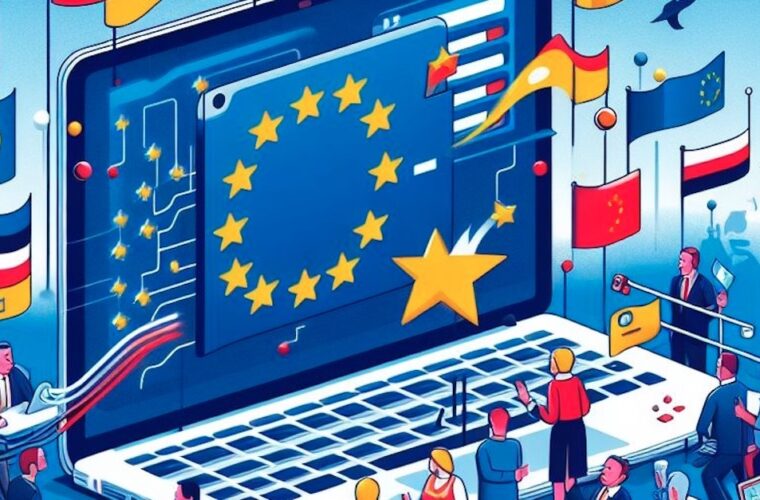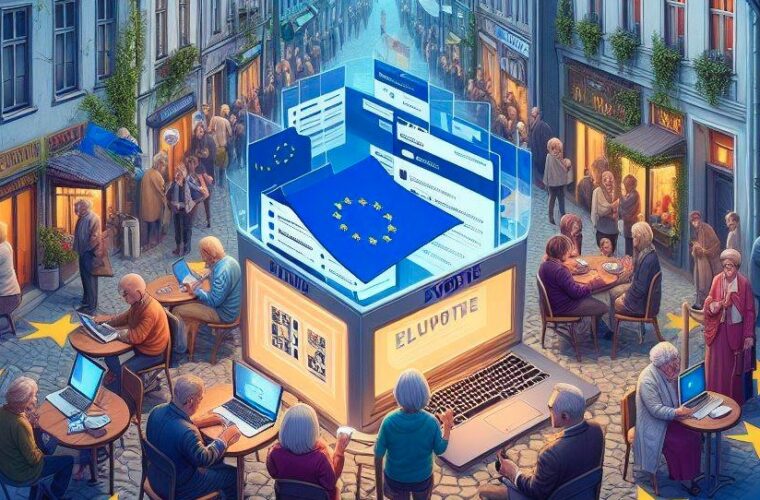Digitization:The European Union (EU) elections are a cornerstone of democratic governance, reflecting the collective will of over 447 million citizens across 27 member states. As the world rapidly transitions into the digital age, the importance of digitization in these elections cannot be overstated. Embracing digital technologies offers myriad benefits that enhance the electoral process, making it more accessible, transparent, and secure.
Enhancing accessibility and engagement
One of the primary advantages of digitization is the increased accessibility it provides. Traditional voting methods can be restrictive for certain segments of the population, such as those with disabilities, older individuals, or citizens living abroad. Digital voting platforms can mitigate these challenges by allowing voters to cast their ballots from the comfort of their homes, increasing overall voter participation. This increased accessibility can potentially lead to higher voter turnout, strengthening the democratic process.
Moreover, digital platforms can foster a sense of community and greater engagement by providing real-time information and interactive tools. Voters can access detailed candidate profiles, party manifestos, and policy comparisons, enabling them to make more informed decisions. Social media and other online forums also offer spaces for political discourse, encouraging a more active and engaged electorate and making them feel part of a larger democratic community.
Improving efficiency and reducing costs
Digitization can streamline many administrative aspects of the election process, increasing efficiency and cost savings. Electronic voter registration, for instance, can simplify the management of voter databases, reducing the likelihood of errors and duplications. Digital systems can also expedite the vote-counting process, providing quicker and more accurate results. This increased accuracy can help build trust in the electoral process and its outcomes.
Adopting digital technologies can significantly reduce the logistical costs associated with traditional voting methods—such as printing ballots, staffing polling stations, and transporting materials—and reallocate these savings to other critical areas, such as voter education and cybersecurity measures. Importantly, this shift to digital can also have a positive environmental impact, reducing the use of paper and other resources, and contributing to a more sustainable electoral process.

Ensuring transparency and trust
Transparency is a vital component of any democratic election. Digital technologies can enhance transparency by providing clear and accessible records of the electoral process. Blockchain technology, for instance, offers a tamper-proof method for recording votes, ensuring that each ballot is counted accurately and that the results are verifiable. This transparency can reassure the audience about the fairness and integrity of digitized elections.
Real-time monitoring and reporting systems can also increase transparency, allowing election observers and the general public to track the election’s progress and promptly identify any irregularities. This heightened level of scrutiny can help build trust in the electoral process and its outcomes.
Enhancing security
While digitization offers numerous benefits, it presents new challenges, particularly cybersecurity. However, the EU has recognized this and has proactively implemented robust measures to safeguard its elections. The EU Agency for Cybersecurity (ENISA) works tirelessly to develop and promote best practices for securing digital election systems, ensuring the integrity of the electoral process against cyber threats.
Advanced encryption methods, secure authentication protocols, and continuous monitoring are critical components of a robust cybersecurity strategy. Collaboration between member states is essential to share intelligence and resources, ensuring the entire EU is fortified against potential cyber-attacks.
Promoting inclusivity and representation
Digitization can play a pivotal role in making the EU elections more inclusive. By lowering barriers to participation, digital voting systems can help ensure that the voices of marginalized communities are heard. This inclusivity is essential for representing diverse perspectives in the European Parliament, ultimately leading to more comprehensive and equitable policymaking.
Furthermore, digital platforms can facilitate broader outreach and engagement efforts, making it easier for political parties and candidates to connect with a broader audience. This can lead to a more dynamic and representative political landscape, reflecting the rich diversity of the EU’s populace.
The digitization of the EU elections represents a significant step forward in the evolution of democratic processes. By enhancing accessibility, improving efficiency, ensuring transparency, bolstering security, and promoting inclusivity, digital technologies can help build a more robust and resilient electoral system. As the EU continues to embrace the digital age, it must remain vigilant in addressing the associated challenges, ensuring that the integrity of its democratic institutions is upheld. The future of EU elections lies in harnessing the power of digitization to create a more participatory, transparent, and secure democratic process for all.



